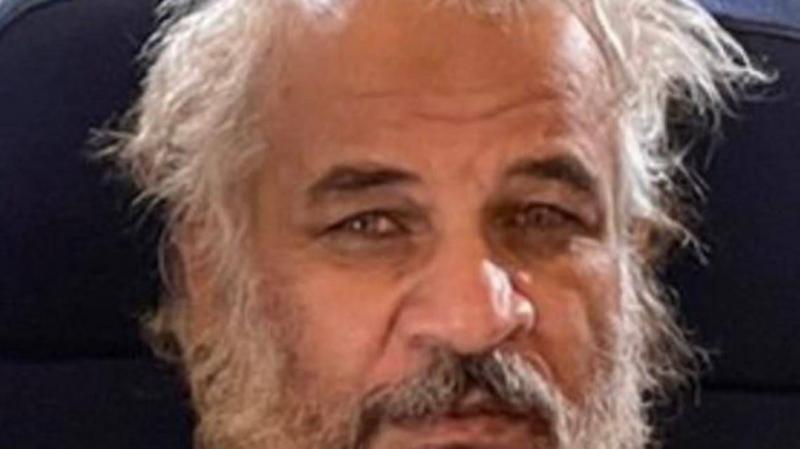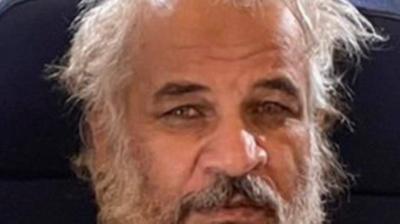Under the title "The Man of Wealth: Iraqi Judiciary Reveals the 'Confessions' of al-Baghdadi's Deputy," Al-Hurra reported that less than a month after his arrest, the Iraqi Supreme Judicial Council revealed on Sunday the confessions made by the Deputy Leader of the ISIS organization, Basim Haji Hamid, according to the Iraqi News Agency (INA).
The Supreme Judicial Council's statement confirmed that Hamid was arrested outside the country following an intelligence operation that lasted approximately six months, where the terrorist was lured through several European cities, ultimately falling into the hands of the Iraqi intelligence service.
The statement noted that Hamid was interrogated and confessed to sensitive and important information provided to the competent judiciary, despite the heightened security conditions accompanying the parliamentary elections. "Haji Hamid" is the name chosen for him by the terrorist organization; his real name is Sami Jassim al-Jubouri, an Iraqi national from the village of Sharqat in Salah al-Din. He graduated from Sharqat Industrial Preparatory School, was born in 1974, and joined the so-called "Monotheism and Jihad Movement" in 2004, moving through several terrorist movements, culminating in "ISIS," where he led key institutions and financial offices of the gangs in Iraq and Syria.
Regarding the role Hamid played in the organization, the statement indicated that he was not only al-Baghdadi's deputy but also a "man of wealth" and a key pillar in establishing the terrorist gangs, exploiting fossil fuel reserves in Iraq and Syria to ensure the organization's continuity.
The terrorist admitted he was responsible for managing the financial movements related to attacks against Iraqi and Syrian security forces, as well as rewards for bombings, in addition to outlining ISIS's administrative divisions. He revealed he supplied the "Monotheism and Jihad" movement, led by Abu Musab al-Zarqawi, stating that "after the security vacuum following the events of 2003, many light, medium, and even heavy weapons were seized from the camps, which I hid in my village."
He added, "In 2004, when around 12 armed factions emerged calling for the fight against the joint forces, the Iraqi army, and police, I supplied the movement with the concealed weapons and began working with my group to plant explosives and prepare explosive-laden vehicles."
He noted that "al-Baghdadi ordered my execution in 2013 after I was accused of working for the al-Nusra Front under the leadership of al-Jolani, who had defected from ISIS; after the intervention of several leadership figures and my recommendation in front of al-Baghdadi, a pardon was issued for me, and I was assigned to the finance division in the Nineveh province as a tax collector."
Regarding the total amount of money he was collecting, he stated, "We used to collect taxes from wealthy individuals, gas station owners, and companies under the threat of killing them," noting that the tax value in Nineveh province reached around $500,000 per month, with half going to al-Baghdadi and the other half at the disposal of the Nineveh governor.
The terrorist affirmed that "higher leadership directed us to proclaim that the organization's goal was to liberate the Sunnis of Iraq from the infidel forces and to lift the restrictions and borders between Muslim countries and unify them." He pointed out that "the Diwan al-Rikaz is among the important offices in the gangs, as it specializes in selling petroleum derivatives and operating oil wells and fields, as well as everything extracted from the ground and its depths."
He revealed that Iraqi oil was sold to individuals owning small factories and refineries, part was smuggled to neighboring countries (which were not named), and the last part was sold on the black market through a port within the territories controlled in Syria for $180 per ton.
In response, the judge from the First Investigative Court of Karkh, specializing in terrorism cases, confirmed that "the accused killed many members of the Iraqi forces by planting explosives as he had joined the Monotheism and Jihad terrorist movement, in addition to participating in the kidnapping of wealthy individuals and others after 2014."
The judge added that "the terrorist accused held senior positions in the gangs, such as Amir of the Diwan al-Rikaz, and later the Diwan al-Bayt al-Mal, to become the deputy amir of the terrorist gangs through which he developed military plans and equipped the organization with personnel and equipment, enhancing the financial system to use those resources in executing terrorist operations."




